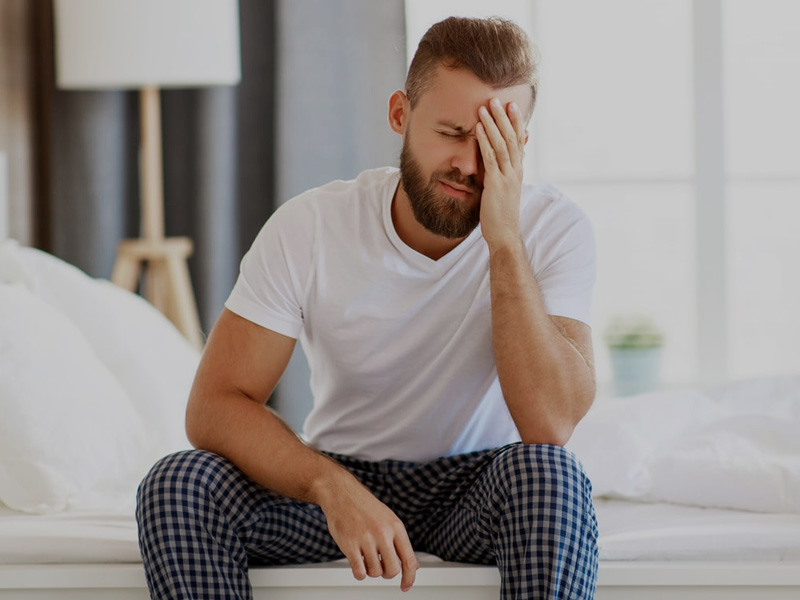
Bed-wetting as we call it, in medical terms is known as nocturnal enuresis or urinating while asleep. A condition generally observed in the growing children, is also sometimes found in adults, which becomes a matter of concern as body and functions are assumed to be developed at the time. More than feeling ashamed, one needs to see it as a problem that they need to consult with a doctor. Recognizing the problem will be the first treatment: know that it has an underlying reason associated or a symptom of a disease, which definitely has a cure.
Table of Content:-
Common Causes of Bed Wetting
Some common causes of Bed Wetting include hormonal imbalance, small bladder, an overactive bladder or an infection in the urinary tract. Some other lifestyle related issues could be a side effect of medicines, overall stress in life, and a specific disease.
Here are some detailed causes of Bed Wetting-
The Hormonal Reason- Antidiuretic Hormone (ADH) present in the kidney is responsible for slowing down urine production at night, the time you have to sleep. The imbalance in its working, which includes less production of ADH, causes you to lose control over urine production. Sometimes, in case of diabetic patients, the effect is seen in the ADH levels that make you urinate more.
Anatomical Reason- The capacity of the bladder, where urine is stored before urinating is smaller, which is why one can hold less urine.

Overactive Muscles- The bladder muscles have a contraction-relaxation mechanism while you urinate: the filling of bladder relaxes the muscles and contracts while emptying. The imbalance in this function can cause the bladder to be overactive, leading to leaks.
Hereditary Reason- Hereditary related problems are many and enuresis is also one. Checking your family tree is important too, as the chances of you being a bed-wetter is high, if your parent was also one for long, it can affect your lifestyle too.
Also Read: Do’s and Don’ts of Bedwetting Every Parent Should Know
Infections- An existing infection in your urinary tract is often a cause of bedwetting. Irritation, inflammation and associated changes may cause unexpected urination.
Other Reasons- Stress is also a good reason for enuresis in an adult’s life. Other than this, medicines such as sleeping pills or antipsychotics can have some side effects, which may irritate your bladder and affect the storing of urine. A few other causes may also include constipation, enlarged prostate, and stones in kidney or urethra.

A physical examination, a neurological examination, urine tests, urological examination, ultrasound of kidney and bladder are primary diagnosis to identify the causes and proceed towards treatment. As a patient, you should also be more observant about the patterns of your problem: what it accompanies, what induces it more such as a food or an activity, does it occur during your night sleep or day sleep too, frequency in a day, number of dry nights as well as the number of wet nights.
Adult Bedwetting Is A Recognized Problem
Urination is an involuntary process, yet is different in adults and children. Discussing the symptoms with a doctor is important to identify the real reasons, so that the problem associated with the symptom could be identified and does not become multi-fold. As pointed out earlier, family history should be known, medical conditions associated with the urinary system should be checked, and stress levels, fluid intake quantity and quality, infections related to urinary tract should get diagnosed. Ignoring the problem will not solve it. It is a problem, medically recognized and hence the patients should not feel embarrassed to share it so that treatment can be done effectively.
Also Read: Nocturnal Enuresis: Symptoms, Causes And Treatment
How can you treat adult bed wetting?
For Remedies, first and foremost would be to take a doctor’s advice and include it in your routine, which should involve conscious and preventive measures.

A doctor will suggest medications that can calm the bladder, treat infections and associated reasons. This type of treatment will help you recover from the underlying cause and condition causing enuresis. These medications may include:
- Antibiotics to treat urinary tract infections
- Anticholinergic drugs- bladder soothing against irritation
- Desmopressin acetate- slows urine production
- DHT-blocking medications against prostate swelling
As a conscious patient, one needs to check up on some of their habits that may affect the problem:
- Avoid certain fluids that increase urination
- Check up your diabetes and get that under control
- Make a routine for your urination- a proper schedule; You may also set an alarm in the middle of the night to urinate
- Use special mattress or water absorbent underpants
- Just before sleeping, void the bladder
Read More Articles in Other Diseases
Also watch this video
How we keep this article up to date:
We work with experts and keep a close eye on the latest in health and wellness. Whenever there is a new research or helpful information, we update our articles with accurate and useful advice.
Current Version